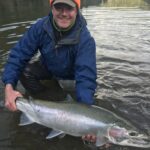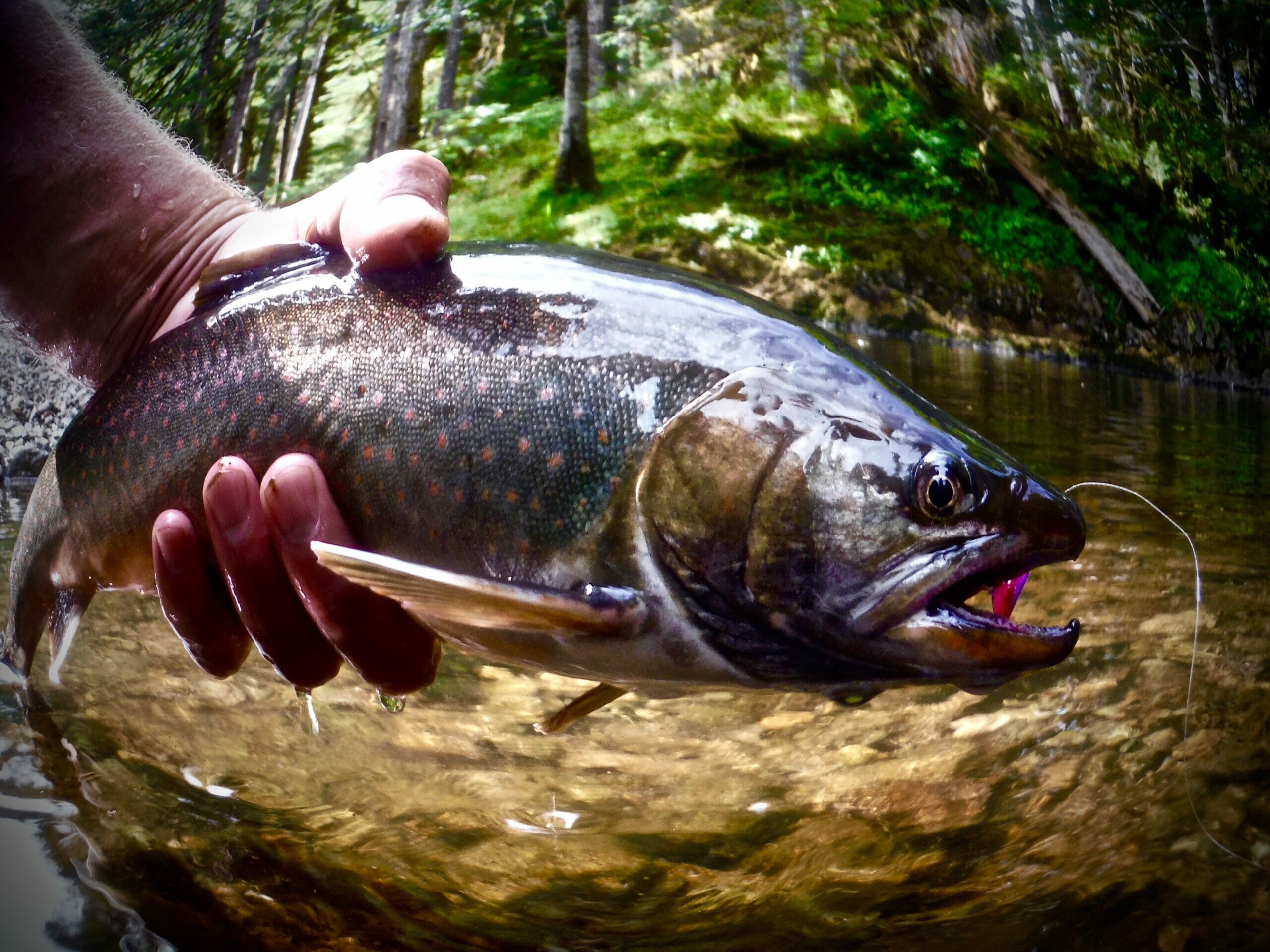On his first day, President Joe Biden unveiled an executive order aimed at confronting climate change and conserving natural resources. A number of the actions identified in the order are Trout Unlimited priorities as we engage in the federal decision-making process on behalf of trout and salmon.
The executive order, Protecting Public Health and the Environment and Restoring Science to Tackle the Climate Crisis, calls for a review of government actions from the past four years involving public lands, climate change, environmental protection, clean air and water, and science-based federal decision-making. This is a first step that may result in “suspending, revising or rescinding” certain agency actions taken during the Trump administration.
In particular, we welcome and support the decision to take a hard look at the following four areas, and look forward to working with the administration to craft policies that will ensure clean water and healthy habitat for fish and wildlife:
Clean Water
Trout Unlimited has worked for years to defend against attempts to erode protection afforded by the Clean Water Act. In particular, the previous administration unraveled protections for millions of stream miles in the Waters of the United States rulemaking, undermined local authority related to Section 401 of the Clean Water Act, and expanded the use of nationwide permits, leading to death by a thousand cuts for streams. The Clean Water Act is one our bedrock environmental laws and these three rules will have big impacts on the ground that jeopardize the cold, clean water trout and salmon need to survive and thrive.
Tongass National Forest
In October, the U.S. Forest Service removed Roadless Rule protections for more than 9 million acres in the Tongass National Forest, the nation’s top salmon-producing forest. Protecting the Tongass National Forest and the world-class coldwater fisheries it supports has long been a priority for Trout Unlimited, and we welcome the opportunity to advocate for reinstating lasting protections with the Biden Administration. And we’re not alone: more than 96 percent of public comments on this proposed decision favored keeping the roadless rule in place.
Oil and gas regulations
In recent years, a number of “energy dominance” actions have been implemented to spur oil and gas development on public lands, all too often creating undue risk for coldwater fisheries and their habitat.
Two specific actions that are now under review are regulations rescinded by the Trump Administration governing “fracking” on federal lands, as well as an instruction memorandum from the Bureau of Land Management that sought to “alleviate unnecessary impediments and burdens” to the oil and gas leasing process. Unfortunately, these actions reduced transparency, limited public comment and encouraged hasty decision-making.
We look forward to working with the new administration and Congress to modernize policies governing energy development and to help bring balance back to public lands management.
The decades-old federal oil and gas leasing program is broken and the last four years have exposed just how deeply flawed the system has become. We saw breakneck leasing favoring drilling over other public land values, putting sensitive fish and wildlife habitat at risk. This has monopolized agency resources, and left the public holding the bag for “orphan” oil and gas wells where the monetary bonds aren’t enough to cover reclamation costs. We look forward to working with the new administration and Congress to modernize policies governing energy development and to help bring balance back to public lands management.
Council on Environmental Quality NEPA Rulemaking
Signed into law in 1970 by President Nixon, the National Environmental Policy Act (NEPA) provides citizens a voice in federal decisions affecting the environment. NEPA fosters transparency and ensures that decisions are fully informed. Every time the Forest Service, BLM or other federal agencies consider major decisions, the public process and environmental review is governed by NEPA. In July, the Trump administration overhauled regulations that guide implementation of NEPA. Unfortunately, these new regulations fundamentally mischaracterize the purpose of NEPA and undermine both the spirit and intent of the law. We support efforts to increase NEPA efficiencies, but not at the cost of public involvement and fully informed decisions that utilize the best available science.
These are good first steps. We expect the Biden administration to invite robust public comment and review of its work and decisions on our critical issues. When the time comes, we will be marshalling the power of our volunteer and partner advocates to make our voices heard.
Stay tuned for opportunities to help us make the case, and in the meantime, visit standup.tu.org for more ways to help.



